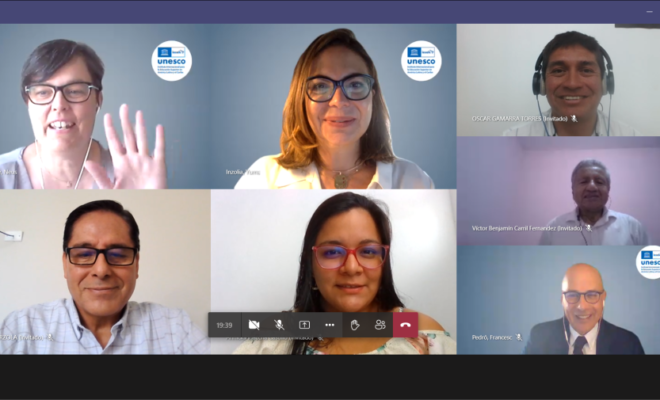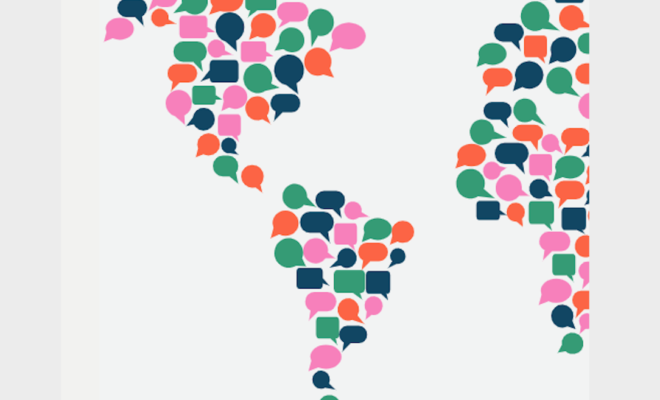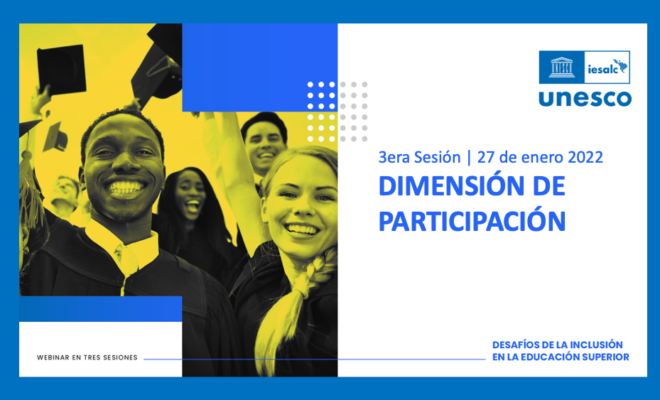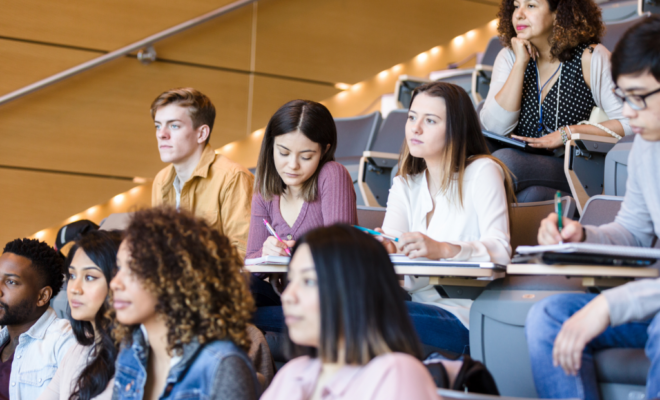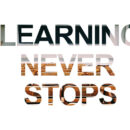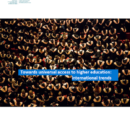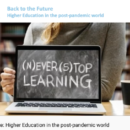Webinar release – Launch of the report Pathways to 2050 and Beyond. Results of a public consultation on the futures of higher education
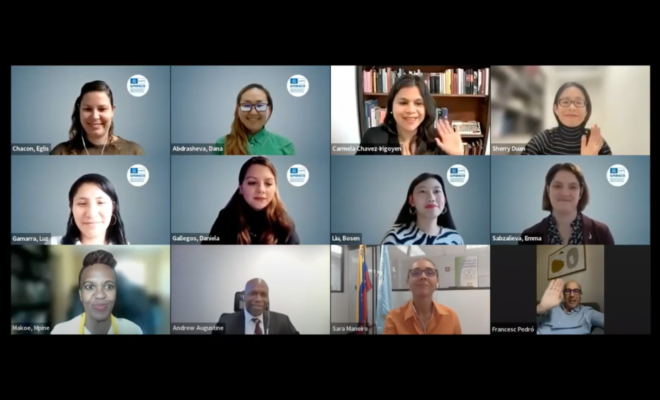
Photo: Some of the report editors, guest speakers at the launch event and the Director of IESALC
By Luz Gamarra Caballero | On 25, November, 2021, UNESCO-IESALC launched the report “Pathways to 2050 and Beyond: Findings from a public consultation on the futures of higher education” as part of the second phase of the project “Futures of Higher Education“. The report helps stimulate creative thinking and ideas about the futures of education to 2050 and beyond through a public consultation with 1200 participants from 97 countries.
The event began with welcoming remarks by Andrew Augustine, Chair of UNESCO IESALC Governing Board and Sobhi Tawil, Director, Future of Learning and Innovation, UNESCO. Andrew Augustine remarked that the project takes a global perspective, nurturing discussions around the role of higher education as part of UNESCO’s wider initiative on the futures of education through consultations with experts, the public and youth. He indicated that this public consultation gathered people’s views on the hopes and concerns, and their ideas about transformation and contributions of higher education of the futures.
Sobhi Tawil noted the importance of this report as part of UNESCO’s large-scale initiative “The Futures of Education”, launched in 2019. This initiative also focuses on the future as a space for democratic design that is connected to, but not limited by, the past and the present. A major report from the initiative, “Reimagining Our Futures Together: A New Social Contract for Education”, was presented at the UNESCO General Conference in November 2021.
As part of the panel, three experts participated: Mpine Makoe, Commonwealth of Learning Chair in Open Education Practices/Resources and Research Professor in Open Distance eLearning at the University of South Africa, Sherry Duan, Senior Programme Officer, Asia-Pacific Programme Office, UNESCO International Centre for Higher Education Innovation (ICHEI), China; and, Carmela Chávez Irigoyen, Specialist on International Higher Education Systems, National Superintendency of Higher University Education (SUNEDU), Peru.
Mpine Makoe highlighted the importance of imagining the futures of higher education and how the report reflects respondents’ hopes for equal access to quality education. She also pointed out that the respondents aspire for a future in which social change happens as a result of higher education, where people work collectively and share responsibilities with an education centered on students. Education of the future should not remain focused on industry but consider environmental sustainability with a flexible format that allows higher education to respond and meet the needs of communities.
On the other hand, Sherry Duan mentioned that the report caught her attention because it considers higher education as a basis for development and as an accelerator or actor that supports societal improvement. In addition, she indicated that the public consultation format gives voice to users of higher education and other non-typical actors. Also, she indicated that the report mentions as one of the key issues of higher education to 2050 – training good teachers – and shows that the awareness of lifelong learning, professional development and other concepts have been integrated into people’s visions, emphasizing a holistic approach to faculty development in institutional capacity building.
Carmela Chávez noted that respondents’ expectations of higher education in the futures were very high, indicating that, even in a post-pandemic scenario whose impacts are not yet fully known, it is hopeful to find voices from different places that continue to place hope on higher education. She also indicated that two paradigms emerge from the public consultation: social justice and educational relevance in the face of the challenges of socio-environmental sustainability. For those who are dedicated to public policy and university management, the report is an invitation to review curricula, contents and techniques; incentivize research policies with a view to sustainability; transform some of the logics of competitiveness in scientific production towards open access, etc.; and urgently assuming the right to higher education in a comprehensive manner.
The audience that actively participated in the webinar posed many interesting questions, including about how future higher education would be funded, how curricula can be updated, and which actors can be involved. In this regard, Mpine Makoe indicated that additional funding might not be necessary if, as indicated by the respondents, both policy makers and the authorities of higher education institutions change the way they are doing things. Sherry Duan highlighted thinking out of the box and linking this to the fifth call to action of the public consultation “strive for higher education to be more relevant” by driving change from within. Then, Carmela Chávez emphasized one of the key issues of the report for 2050 “inclusion with quality”, observing that it does not depend on an increase in the budget if it is not focused on investing intelligently and dialoguing with various actors.
We invite you to read the study presented in the webinar, which is freely accessible in English and Spanish. An interactive version of the report is located on the website: https://www.iesalc.unesco.org/en/futures-of-higher-education/public-consultation/. In support of open science, the full dataset can be downloaded from the web for be used by researchers, students and policymakers around the world.
RELATED ITEMS
